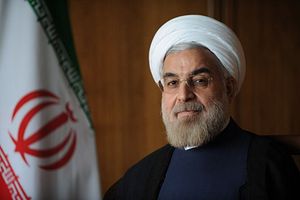The emotion was obvious, from the jubilant crowds in the streets of Tehran to the relieved diplomats in the lobby of the Intercontinental Hotel in Geneva and beyond. Those who had fervently hoped for a successful outcome to the Geneva talks heaved a sigh of relief as soon as a historic deal had been sealed between Iran and the world powers. Iranian Foreign Minister Mohammed Javad Zarif and his P5+1 interlocutors were lauded for their relentless efforts to achieved a consensus. U.S. President Barack Obama also received praise, as his consistent policy on Iran finally began to pay dividends. Yet there is perhaps one more thing to be thankful for: digital diplomacy.
In a belated initiative, Iranian conservative leaderships have embraced Twitter diplomacy in an attempt to bridge the gap between Iran and rest of the world. Initially somewhat unnoticed, it drew mass attention when it began to reveal some unprecedented positions. When Iranian President Hassan Rouhani greeted the Jewish people on Rosh Hashanah, Jewish New Year, on his Twitter account, it very quickly made headlines. Foreign Minister Mohammad Javad Zarif soon followed. In reply to Mr. Zarif’s tweet, Christine Pelosi – daughter of Nancy Pelosi, the minority leader in the House of Representatives – said, “The New Year would be even sweeter if you would end Iran’s Holocaust denial, sir.” “Iran never denied it,” Retweeted Zarif. “The man who was perceived to be denying it is now gone. Happy New Year.” It was a clear indication of a break from former President Mahmoud Ahmadinejad.
Another tweet from Rouhani echoed this: “[Unlike the claims of my predecessor] my government is not connected to the heavens, and I am not a miracle maker.” Rouhani then tapped Zarif, a former envoy to the UN, to be chief negotiator for Iran’s nuclear program. Previously, this role was filled by the national security advisor. Zarif is seen as a moderate and easier to deal with than his predecessor was.
Rouhani’s trip to New York to address the UN General Assembly has been a high point in his diplomatic outreach. During this period, his Twitter team made full use of the medium to update the world on the Iranian president’s activities. In particular, a message that Rouhani conveyed in English in an interview with CNN’s Christiane Amanpour, “I would like to say to American people: I bring peace and friendship from Iranians to Americans,” was splashed across the web, helping to build American trust. The thaw continued when Rouhani telephoned Obama before wrapping up his week-long U.S. tour.
Subsequently, the Iranian leadership used Twiplomacy to dispatch fresh messages. Before the commencement of first Geneva talks, Rouhani tweeted; “Iranian nation has never hated any nation–incl. #American people. What has been and still is of concern are hostile policies, which we condemn.”
Iran has spared no effort to take advantage of social media. The first Geneva talks failed to produce a visible outcome. Nonetheless, Rouhani and his team continued to speak of a future solution. At the same time, they continued to remind Iranians of their right to continue the nuclear program as well as the government’s priority to find a way out of the crippling sanctions. Twitter diplomacy has helped Rouhani maintain public support, bolstering his leadership image abroad. The contrast to his predecessor could not be starker.
Rouhani vowed to affect real change within hundred days of his premiership. He appears to have fulfilled that promise. And of course he has turned to Twitter to showcase his achievement to the world.

































